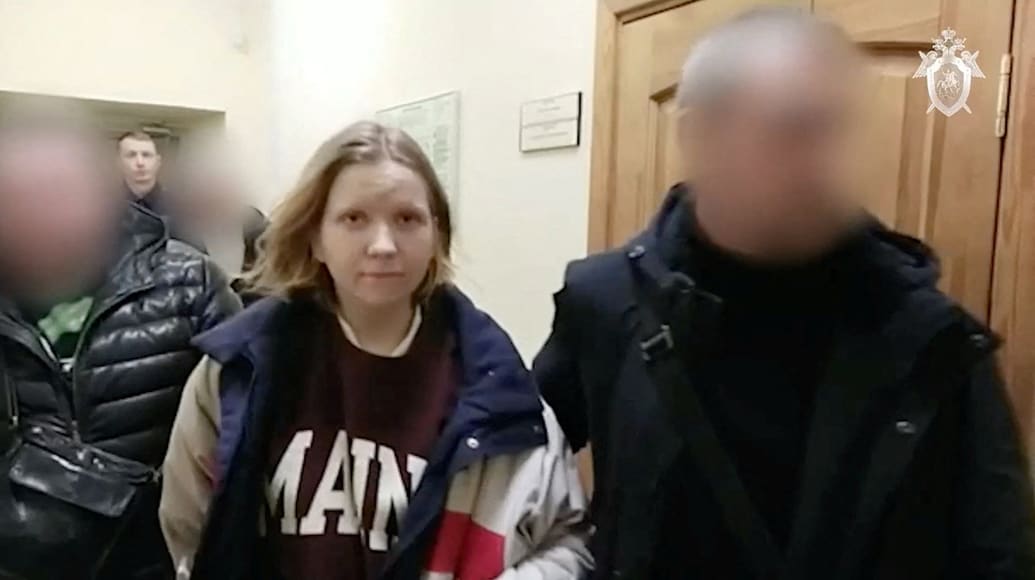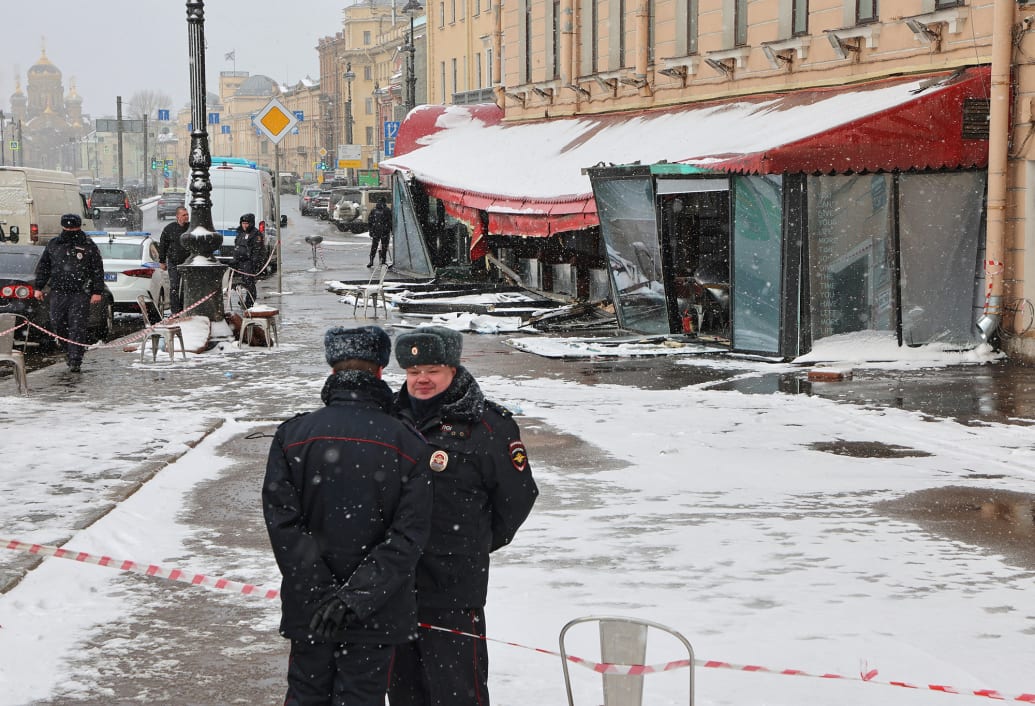Russian exile and former parliament member Ilya Ponomarev, who once threatened to “finish off” Vladimir Putin from abroad, has claimed that the bomb that killed a prominent military blogger in a café in St. Petersburg is the work of Russian partisan rebels he has been cooperating with.
“I know the people who organized the murder of Tatarsky, I had known about the preparations for the attack in advance,” Ponomarev told The Daily Beast in an exclusive interview on Monday. “I welcome such actions… they eliminate war criminals and their aides.”
Ponomarev—who said he was offering “financial and political” support to the alleged Russian partisans who masterminded the bombing that killed pro-war blogger Vladlen Tatarsky on Sunday—first made headlines in August 22, when he claimed that the same network of Russian rebels were responsible for the car bomb that killed Darya Dugina, the daughter of a prominent Russian nationalist.
“This action, like many other partisan actions carried out on the territory of Russia in recent months, was carried out by the National Republican Army (NRA),” he said of the August assassination on February Morning, an anti-Kremlin television channel he runs in Kyiv, where he has been living since he was banned from entering Russia in 2019.
At the time, Ponomarev read what was purportedly a manifesto from the group on his newscast, in which the alleged rebels vowed Putin “will be deposed and destroyed by us.” Now, the former lawmaker is again claiming that partisan rebels are targeting the Kremlin from within Russia’s own borders, adding that he has been providing “financial support” to the group.
The Daily Beast has not independently verified the authenticity of the claims from Ponomarev, whose widely-reported allegations about the Dugina bombings were met with both skepticism and support.
On Sunday, Russian authorities arrested 26-year-old Daria Trepova in connection with the bombing that killed Tatarsky at the Street Food Bar #1 Cafe, formerly owned by notorious Russian mercenary boss Yevgeny Prigozhin. According to sources cited by Russian state media, Trepova, who was previously named on the Russian interior ministry’s wanted list for a murder investigation, is accused of bringing a statue containing an explosive device that detonated in the café.
Thirty-two people were also injured in the attack that killed Tatarsky. The Kremlin has since blamed the bombing on Ukrainian secret service operatives, who they claim are working in tandem with supporters of jailed opposition activist Alexei Navalny.
Pressed on his knowledge of the suspect and her alleged role in the bombing, Ponomarev said that he didn’t personally “know Daria and the specific degree of her involvement.” In a video released by Russian authorities on Monday, which was likely made under duress, the 26-year-old was filmed saying she was “at the scene of Vladlen Tatarsky’s murder… I brought the statuette there which blew up,” but did not say that she knew the statuette contained an explosive device.
Police officers stand guard at the scene of the cafe explosion in which Russian military blogger Vladlen Tatarsky, (real name Maxim Fomin) was killed the day before in Saint Petersburg, Russia.
Anton Vaganov/Reuters
War of words
In a Monday newscast of February Morning, Ponomarev and his colleagues pushed back on the use of the term “terrorism” to describe the café attack. While discussing the incident, Ponomarev declared that the number of Russian partisans was rapidly growing. “There is an active group of anti-war activists, the war is a source of the violence, the fact that people like Tatarsky die, that is the consequence of the war… the Kremlin started the war, performs acts of genocide and war terror in Ukraine,” he said.
In the same broadcast, Roman Popkov, the exiled former leader of Russia’s far-left National Bolshevik party and Ponomarev’s ally, said that the arrested suspect had followed him on social media, and that they had corresponded in the past. He also mentioned another recent attack on an FSB office in the Rostov region, saying “Partisans were preparing for it for two months and FSB missed it. There was a big fire, explosions, I think it was an important point, that people who are not connected with anybody abroad managed to organize themselves and perform such a complicated act.”

Darya Trepova, suspected of bringing explosives to the cafe where war blogger Vladlen Tatarsky (real name Maxim Fomin) was killed in an explosion the day before, is escorted inside the building of Russian Investigative Committee, in Saint Petersburg, Russia.
Investigative Committee of Russia via Reuters
Just a day before the explosion at the Saint Petersburg café, RosPartizan, a Telegram channel administrated by Popkov and his friends, had posted an ominous message asking followers to “prepare for the attacks carefully, be brave and careful, by all means do not act in the regions where you live.” Some Russia news outlets have accused Popkov of having “recruited” the suspect to carry out the attack. Shortly after the Sunday bombing, however, he took to his channel to say that “I did not give Daria any orders, did not introduce her to Ukrainian intelligence. I am specialized in the coverage of the war and the partisan movement.”
Ponomarev’s February Morning colleague Matvei Ganapolsky told The Daily Beast he is convinced that the Kremlin still has no idea who is behind the attack, “so they blame everybody at once,” in reference to Russian authorities statements on Ukrainian agents and Navalvy supporters having planned the bombing. He emphasized that “nobody in our team says we are in touch with Russian partisans, only Ponomarev—that narrative would have disqualified our news channel.”
The veracity of Ponomarev’s claims have been questioned by some Kremlinologists, including Moscow-based radical group expert Alexander Verkhovsky, who told The Daily Beast in August that “of course there are anti-war partisan groups in Russia. They throw Molotov cocktails, blow things up,” but cast doubt on any notion that “they were united in some big army.”
Others, like Russian political exile Olga Kurnosova—who has worked with Ponomarev to organize summits between Kremlin exiles in Poland—are taking him more seriously.
“If he says that he’s known before the explosion who stood behind it, he definitely means it,” she told The Daily Beast. “His reputation among liberal Russians suffered a lot after the assassination of Dugina, which he claimed he had supported, so he is careful about what he says now.”






